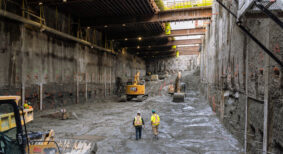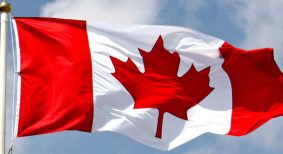The University of British Columbia has announced the construction of the Indian Residential School History and Dialogue Centre (IRSC). The $5.5-million building in the heart of campus will recognize the history and experiences of residential school survivors, and memorialize the thousands of indigenous children who died while in attendance.
Scheduled for completion in the 2017-18 academic year, IRSC will provide former students and their families with access to the records of the Truth and Reconciliation Commission of Canada, and give students and visitors ways to understand the history and lasting effects of Indian residential schools as a context for thinking about contemporary relationships. Advanced use of interactive media will give visitors the opportunity to explore extensive records and testimony and form their own understandings. The centre will also serve as a hub for academic and community research, education and public programming.
“The centre will provide the UBC community an opportunity for greater reflection on a difficult chapter in Canadian history,” said UBC President Santa Ono. “Recognition of our past is of critical importance to UBC and to all Canadians in planning our future. The centre will help us to collectively rethink the relationship between indigenous and non-indigenous peoples in this country.”
An affiliate site to the National Research Centre for Truth and Reconciliation in Winnipeg, IRSC will particularly focus on the experiences of indigenous peoples in B.C., where many of the schools were located, and will provide local access to records for survivors and their families on the West Coast.
“An important function of this centre is to acknowledge the lives and histories of indigenous peoples in Canada,” said Linc Kesler, director of the UBC First Nations House of Learning. “Through both policy and inaction, the circumstances of indigenous peoples have often been invisible in all but the most superficial ways. It is a responsibility of the university and the educational system as a whole to change that and provide the basis for more informed interactions.”
Canada’s Indian residential school system started in the 1800s. The government-sponsored system forced an estimated 150,000 indigenous children out of their homes and into strict religious boarding schools. Many were physically and sexually abused, and some were used as test subjects in nutritional and other forms of experimentation. An estimated 6,000 children died while in attendance. The last residential school closed in 1996 in Saskatchewan.
When complete, IRSC will be a donor-funded, two-storey building covering approximately 6,500 square feet, located between Koerner Library and the Irving K. Barber Learning Centre.
IRSC is developed in collaboration with Indian Residential School Survivor Society and in consultation with the Truth and Reconciliation Commission of Canada. For more information, click here.









